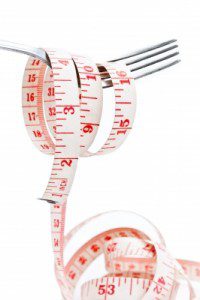 Losing weight is no easy task. So when you make a decision to drop a few pounds, what should be included in your weight loss plan in order to be successful at not only losing weight, but keeping it off?
Losing weight is no easy task. So when you make a decision to drop a few pounds, what should be included in your weight loss plan in order to be successful at not only losing weight, but keeping it off?
Having worked with hundreds of people over the years and writing several books on this topic, losing weight and keeping it off must address these 10 areas:
- Physical examination. Make sure there are no physical issues to stop or cause you to lose/gain weight. Have your physician check you out and give you the green light to start losing weight.
- Exercise. You need to do this, not to drop pounds, but to stay fit. Exercise has multiple health benefits and is necessary to maintain weight loss, but it won’t peel the pounds off quickly.
- Nutrition and a sensible eating plan for weight loss. Fad diets cannot be sustained over time. Use one of the many sensible plans like Weight Watchers, the DASH Diet, the Mediterranean Diet, etc. Remember, it is lifestyle changes that matter!
- Change the daily patterns of your eating–this is a behavioral change that is needed for success. Don’t skip breakfast or eat because of environmental cues that might trigger you, e.g., TV, the car. Look at your triggers and make changes.
- Change the way you think. Develop a positive relationship with food. Food is not your enemy. Eating should not be a battle that depresses you. Food is to be celebrated, enjoyed and used as a source of nourishment. For more help, I recommend my book, Press Pause Before You Eat. It will help you develop a positive relationship with food.
- Change the way you cope–stress and emotional eating is usually what keeps people stuck. This is an area most of us have to work on continuously as it is easy to eat our emotions. Substitute others ways to cope.
- Review your self-control strategies. Helps like removing temptation, eating small portions, eating at the table, not keeping snacks in the house, etc., make a difference in self-control. Out of sight, out of mind works!
- Deal with the past and hurts. It’s too easy to eat when you are upset so work on triggers like past hurts. You don’t want to dive into the ice cream when a break up occurs. This only reinforces using food for comfort.
- Deal with relationship issues. Make sure you are not eating in response to conflict or relationship issues. On-going relationship issues can be a source of turning to food to feel better or deal with stress. Get a copy of my book, We Need to Talk and work on dealing with conflict in healthy ways.
- When you slip up, allow yourself that mistake and get right back on track. When people give in and go off their eating plan, they tend to give up. Just say, ‘No big deal. I can get right back on my plan at the next meal.”


